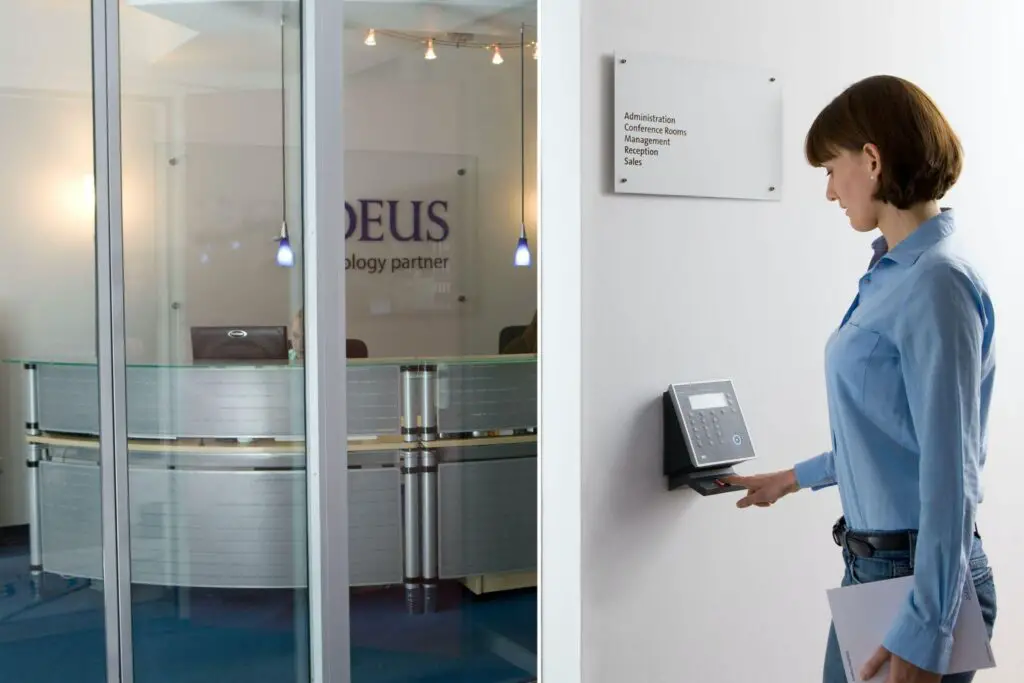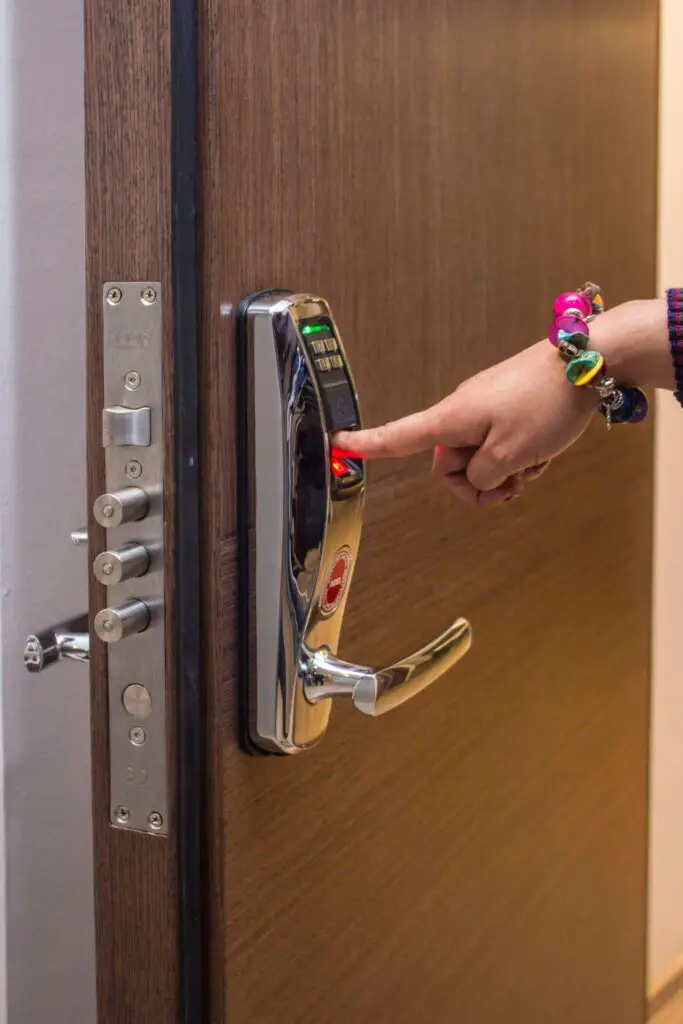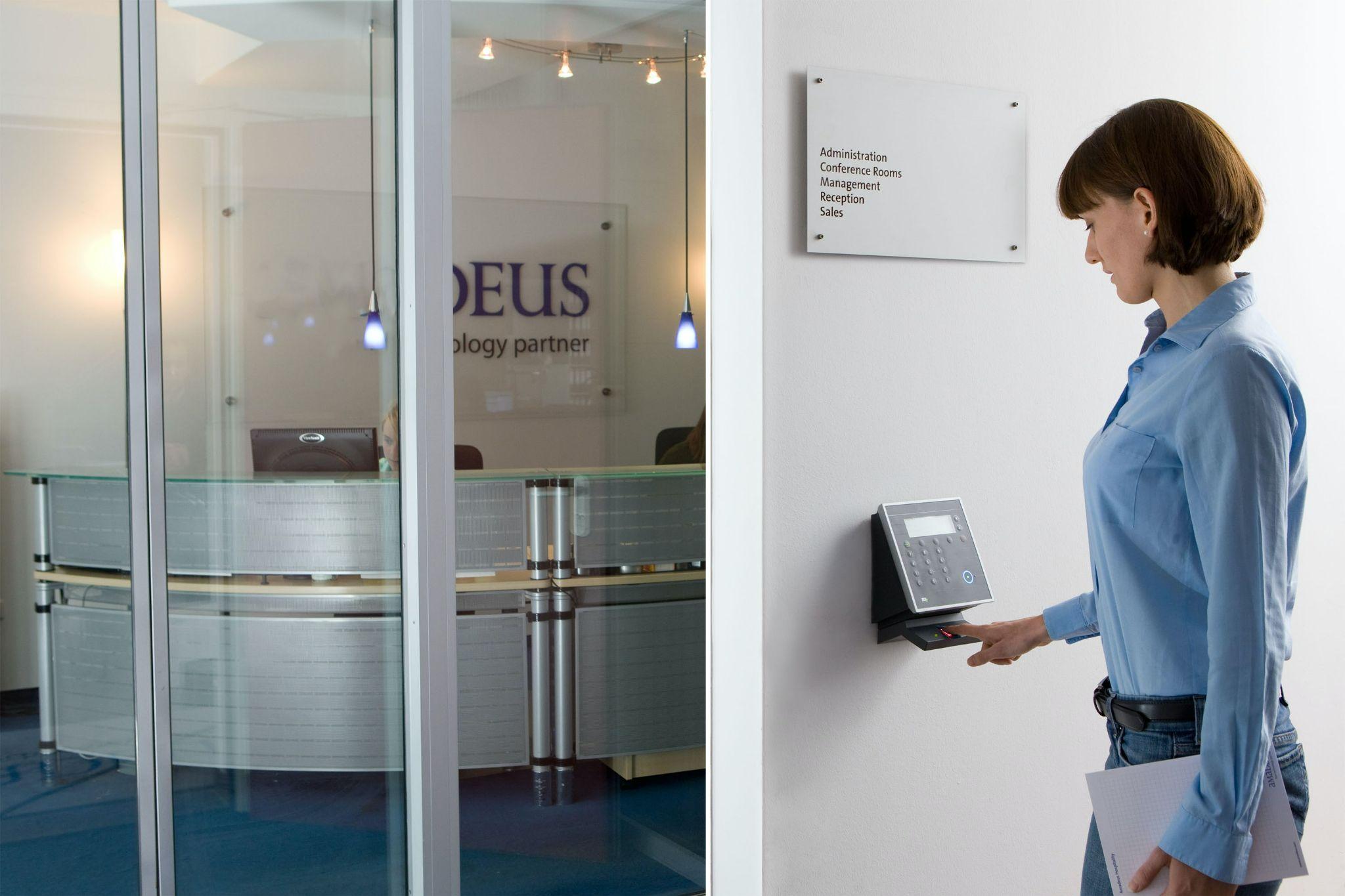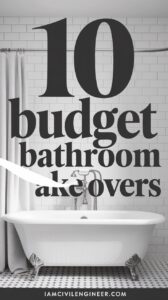Biometric locks have become increasingly popular in recent years as a way to secure your property and protect your valuables. They offer a cutting-edge level of security that traditional locks can’t provide.
But before you decide to use them, it’s important to understand the pros and cons of biometric locks. In this article, we’ll take a look at the advantages and disadvantages of biometric locks so you can make an informed decision. We’ll also discuss how to choose the best biometric lock for your needs.

Advantages of Biometric Locks
The advantages of utilizing a biometric lock are clear—it offers a secure, convenient way to protect your property.
For one thing, biometric locks can only be accessed with a unique fingerprint, which is almost impossible to replicate or steal. This provides a much higher level of security than traditional locks, which can be easily picked or forced open.
Additionally, biometric locks are very convenient because you don’t need to carry around a physical key or key card. All you need to do is scan your fingerprint and the lock will open. This makes it much easier to access your property, especially if you’re in a hurry.
Finally, biometric locks are much more durable and long-lasting than traditional locks, as they’re not affected by changes in weather or wear and tear. This means that you can enjoy the same level of security and convenience for a long time.

Disadvantages of Biometric Locks
With no key to lose, biometric locks may seem like the perfect security solution – but they come with their own set of drawbacks!
For starters, biometric locks may be costly to install and maintain. Depending on the type of biometric lock, you may need to purchase additional hardware, such as a scanner or an additional access control system. Additionally, biometric locks require periodic calibrations to remain accurate and secure.
Another downside of biometric locks is that they can be unreliable, especially in certain conditions. For example, if a person’s body temperature is too low or too high, or if their skin is dry, their biometric credentials may not be recognized. Furthermore, the technology may not be able to distinguish between two people with similar biometrics, leading to access control issues.
Like Us on Facebook!
Finally, biometric locks can be vulnerable to data breaches. If someone is able to gain access to the biometric data stored in the lock, it can be used to gain access to the premises without authorization. This could result in serious security risks.
Subscribe Us on YouTube!
To sum up, biometric locks may offer more secure access control than traditional locks, but they come with their own set of drawbacks. Before investing in a biometric lock, it’s important to consider the potential risks and determine if the added security is worth the cost.
Choosing a Biometric Lock
Figuring out which biometric lock is right for you can be tricky, so it’s important to weigh up the advantages and disadvantages before making a decision.
Consider the type of security you need to provide as well as your budget. Think about the features that are most important to you and decide if you want something that requires a code, fingerprint, or facial recognition.
Make sure you also consider the durability and reliability of the lock, as well as the battery life.
Make sure you research the different types of biometric locks available and read reviews from other users to ensure you get the best product for your needs.
Additionally, consider the installation process and whether you will need to hire a professional or if you can do it yourself.
Finally, check out the warranty and customer service offered by the manufacturer to ensure you are getting the best value for your money.
Conclusion
You’ve now seen the pros and cons of biometric locks.
On the one hand, they offer a great level of security, convenience, and speed.
On the other hand, they come with a hefty price tag and can experience technical issues.
Ultimately, the decision on whether to invest in a biometric lock or not is yours. Consider your security needs and budget before making a decision.
After all, the best lock is the one that fits your particular needs. With the right research and a bit of patience, you can find the perfect lock for your home or business.



















